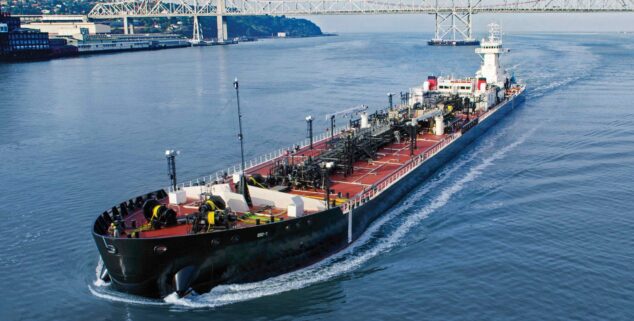Opinion
Dear CARB: help us help you meet cleaner air standards

OPINION: The domestic maritime industry must continue to play a leading role in helping California and the U.S. reach net-zero emissions. American companies and government partners are already making strides to reach this goal by advancing low and zero emission harbor vessels and efficient port infrastructure. Together, we can do more to clean our air without risking our economy or energy supply.
To be effective in reaching these important goals, the private sector and state agencies, such as the California Air Resources Board (CARB), must work hand in glove to bring the most efficient and cost-effective clean-air policies and standards to reality. Without a collective effort, we will fall short of our important goals to improve people’s lives and the environment.
Unfortunately, a hiccup has surfaced in CARB’s Commercial Harbor Craft Regulation (CHC) regulation. CHC incorrectly classifies large ocean-going articulated tug barges (ATBs) – specialized large marine barge vessels that ply the waters offshore to feed the already strained fuel supply chain within California and other West Coast states – the same as smaller commercial harbor craft that work solely within a single harbor in California.
Without much fanfare, ATBs carry the fuel we need between and among California’s and other West Coast state’s ports and terminals. The regulation would effectively require every vessel in this sector to be replaced or leave the state on a short timeline due to erroneously treating ocean-going ATBs the same as small harbor craft.
Never mind the fact that the capacity to design and build the number of ships required to replace the existing fleet does not exist. Worse, CARB has dictated ATBs deploy emissions reduction technology that has yet to be developed. It is important to note that the existing fleet already is regulated by the U.S. Environmental Protection Agency and the U.S. Coast Guard.
By not working with industry on a feasible timeline to change over the fleet of ATBs that the California economy is so reliant upon, CARB has set a scenario for even more carbon emissions to occur had this rule never been adopted. Instead of having our state’s necessary fuels delivered by efficient and reliable ATBs, they would be delivered in a much more carbon intensive manner via larger tankers, truck or rail. This will have a detrimental effect on communities that already suffer disproportionately from emissions and the associated particulate matter spewing next into their neighborhoods.
This maritime industry sector needs CARB to listen and work together to ensure we get this right.
The new CARB policy will harm middle class families because prices will likely increase. This is because the loss of these ATBs will make it more difficult for supply to meet demand. It is a given that Californians will pay more at the gas pump; the policy will also impact prices at the supermarket and any other product consumers might purchase in the state. Further, California families and the world’s fourth largest economy will feel the strain and become more reliant on foreign energy sources if the consistent delivery of fuel from ocean going ATBs is cut-off.
This maritime industry sector needs CARB to listen and work together to ensure we get this right. There is no do-over and a reasonable timeline to transition a fleet of this size must be established together with an understanding that the technology needs to be developed and that ships and emissions equipment of this size and scale cannot be built overnight. In fact, the industry has come forward with ideas on how to further eliminate emissions from marine vessels, not just ATBs. Newly developed zero emissions harbor tugs are being built and designed for the state, including one in San Diego in collaboration with CARB.
The truth is that CARB and Governor Newsom can step in. The way to solve this is to support a petition to amend the CHC to allow a workable alternative compliance plan for large ocean-going ATB’s – a process that already exists in our state.
By doing so, state leaders and regulators can help keep these vessels providing fuel to California as we all reduce emissions at our ports and on our waters. The maritime industry stands ready to meet this challenge and continue to serve the needs of the California economy, provide good jobs, and cut marine vessel emissions.
Patrick O’Donnell is a former Assemblymember for California’s District 70 and former Chair of the Select Committee on Ports Goods Movement.
Want to see more stories like this? Sign up for The Roundup, the free daily newsletter about California politics from the editors of Capitol Weekly. Stay up to date on the news you need to know.
Sign up below, then look for a confirmation email in your inbox.

Leave a Reply